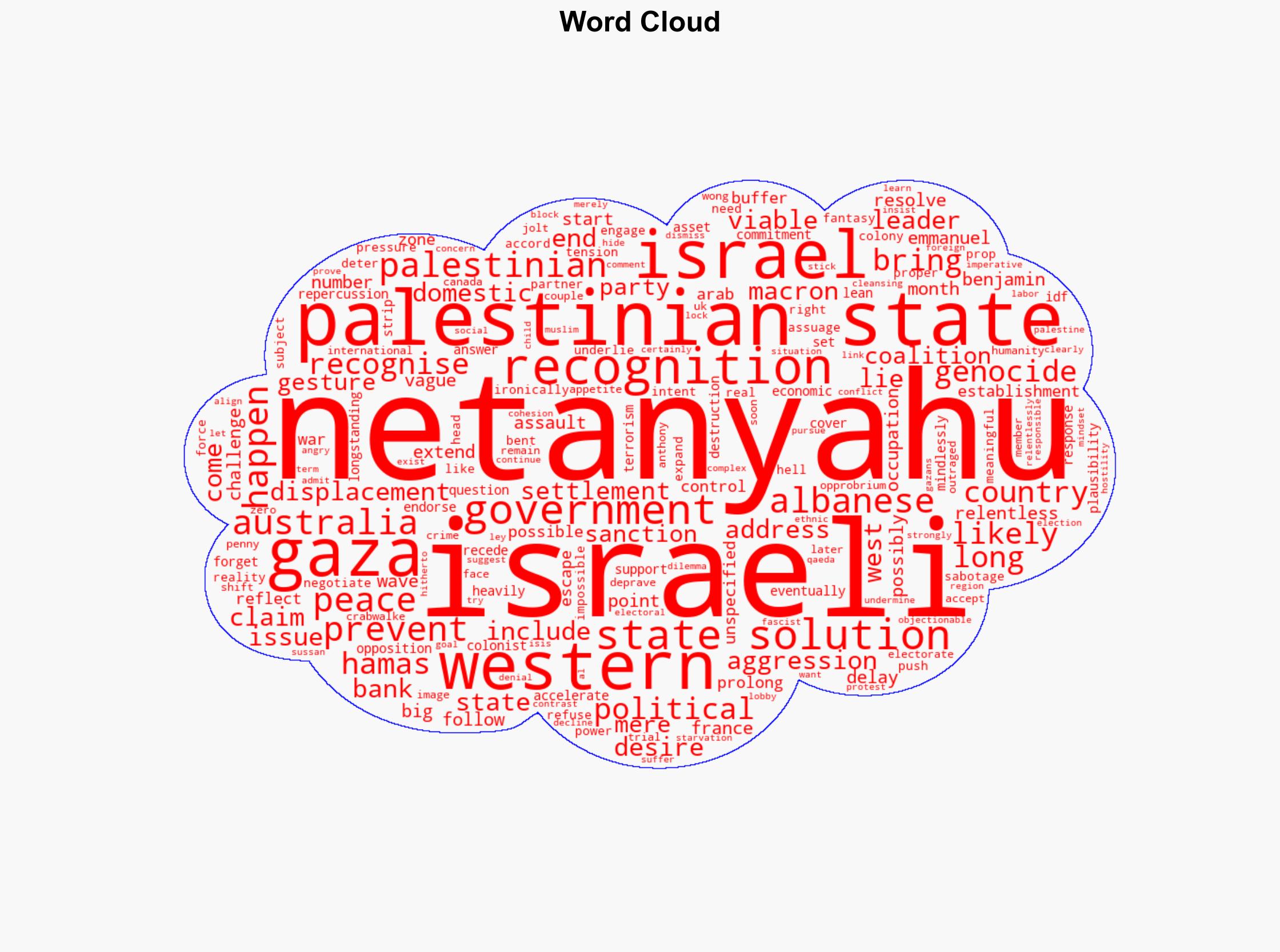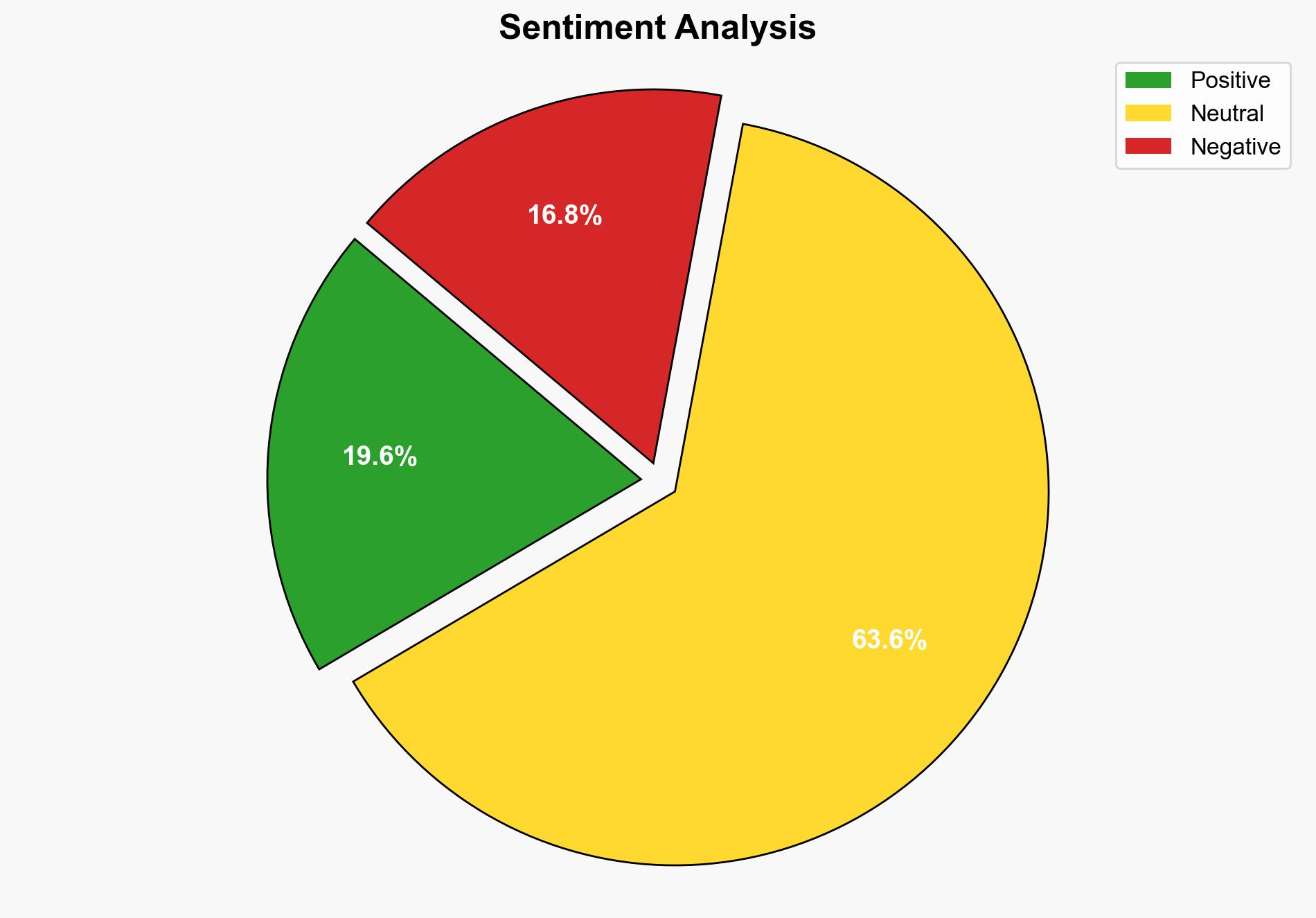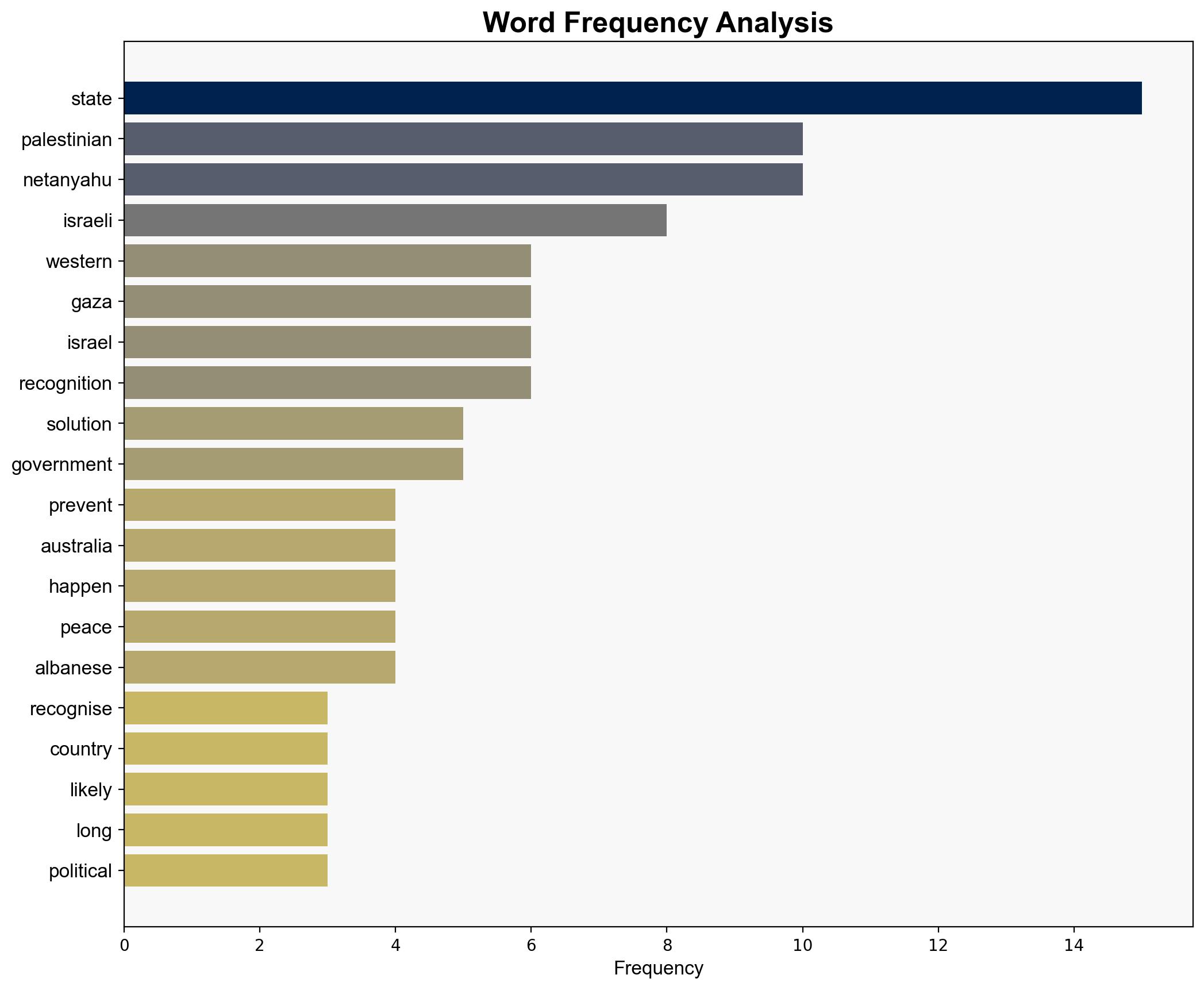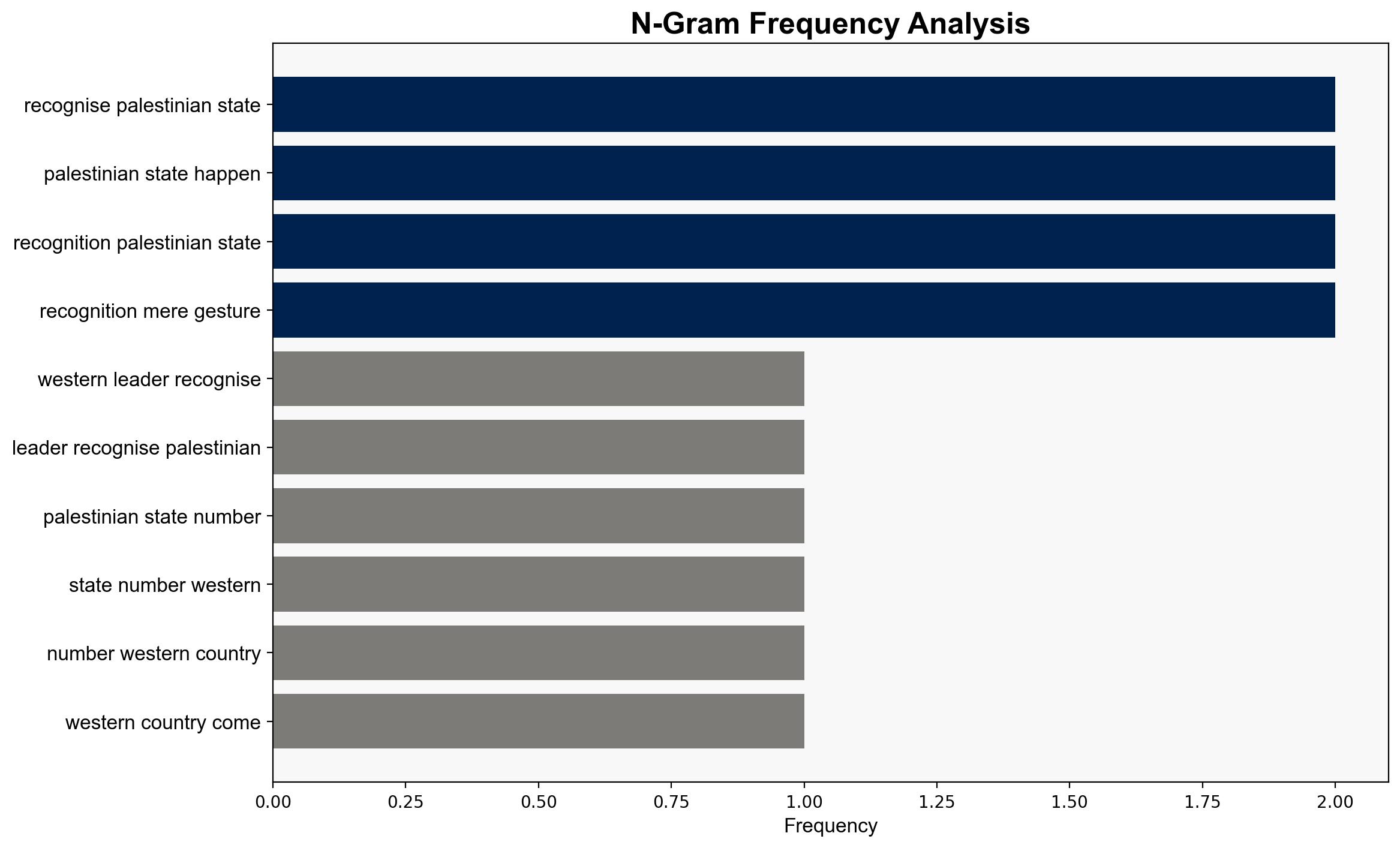Netanyahus aggression leaves Western leaders like Albanese bereft of ideas – Crikey
Published on: 2025-08-08
Intelligence Report: Netanyahus aggression leaves Western leaders like Albanese bereft of ideas – Crikey
1. BLUF (Bottom Line Up Front)
The strategic judgment indicates that Western leaders are struggling to formulate a coherent response to Israeli actions under Benjamin Netanyahu, particularly regarding the Palestinian state issue. The most supported hypothesis suggests that Netanyahu’s policies are deliberately aimed at preventing the establishment of a Palestinian state, leveraging geopolitical tensions to maintain internal political stability. Confidence in this hypothesis is moderate due to the complexity of international relations and domestic political pressures in Western countries. Recommended action includes diplomatic engagement and pressure on Israel to halt aggressive policies, while simultaneously addressing domestic political narratives.
2. Competing Hypotheses
1. **Hypothesis A**: Netanyahu’s aggressive policies are primarily aimed at preventing the establishment of a Palestinian state, using military and political strategies to maintain control and avoid political repercussions.
2. **Hypothesis B**: Netanyahu’s actions are a strategic maneuver to consolidate power domestically, using the conflict to distract from internal issues and rally nationalist support.
Using ACH 2.0, Hypothesis A is better supported due to consistent patterns of behavior aimed at undermining the viability of a Palestinian state, as well as statements and actions that align with this objective.
3. Key Assumptions and Red Flags
– **Assumptions**: It is assumed that Netanyahu’s policies are primarily driven by a desire to prevent a Palestinian state rather than other geopolitical or domestic considerations.
– **Red Flags**: Potential cognitive bias in interpreting Netanyahu’s actions solely as aggressive without considering defensive or reactive motivations. The lack of concrete evidence linking Netanyahu’s actions directly to long-term strategic goals could be a blind spot.
– **Inconsistent Data**: The narrative does not fully account for the role of other regional actors or the impact of international diplomatic efforts.
4. Implications and Strategic Risks
– **Geopolitical Risks**: Continued Israeli aggression could lead to increased regional instability, drawing in neighboring countries and complicating international relations.
– **Domestic Political Risks**: Western leaders face domestic pressures to respond to humanitarian concerns, which could lead to shifts in foreign policy and alliances.
– **Escalation Scenarios**: Failure to address the root causes of the conflict may result in prolonged violence and potential escalation into broader regional conflicts.
5. Recommendations and Outlook
- Engage in multilateral diplomatic efforts to pressure Israel into halting aggressive policies and resuming peace negotiations.
- Address domestic political narratives by highlighting humanitarian concerns and the long-term benefits of a peaceful resolution.
- Scenario Projections:
- **Best Case**: Successful diplomatic intervention leads to a ceasefire and renewed peace talks.
- **Worst Case**: Escalation of conflict results in regional instability and increased international tensions.
- **Most Likely**: Continued stalemate with intermittent violence and limited international intervention.
6. Key Individuals and Entities
– Benjamin Netanyahu
– Emmanuel Macron
– Anthony Albanese
– Penny Wong
– Sussan Ley
7. Thematic Tags
national security threats, geopolitical strategy, Middle East conflict, international diplomacy





